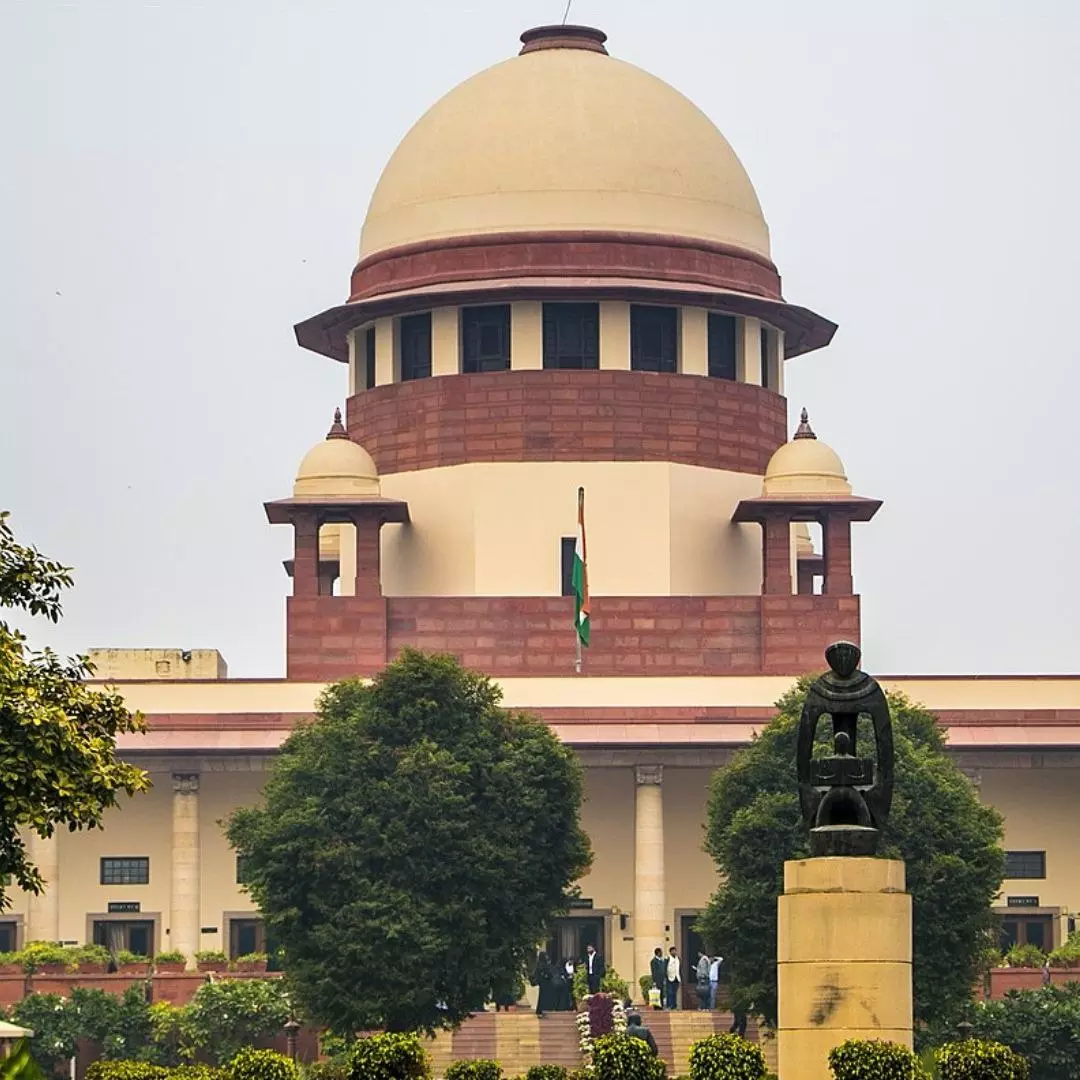
Image Credits: Wikipedia
"Groundbreaking Initiative": SC Releases Gender-Just Handbook For Judges
Writer: Ankita Singh
A literature lover who likes delving deeper into a wide range of societal issues and expresses her opinions about the same. Keeps looking for best-read recommendations while enjoying her coffee and tea.
India, 17 Aug 2023 6:24 AM GMT
Editor : Al Arafat Sherfuddeen |
Passionate writer about current events, politics and happenings nationally and globally. An agent of communal harmony and an ardent Arsenal fan.
Creatives : Ankita Singh
A literature lover who likes delving deeper into a wide range of societal issues and expresses her opinions about the same. Keeps looking for best-read recommendations while enjoying her coffee and tea.
In a foreword to the book, CJI Chandrachud said, “The handbook aims to assist judges and the legal community in identifying, understanding and combating stereotypes about women.”
In a significant move aimed at eradicating stereotypes and misconceptions against women, the Supreme Court has taken the initiative by creating a glossary of terms to be avoided by judges and lawyers when writing judgments or filing cases before courts. The initiative, conceived by Chief Justice of India (CJI) Dhananjaya Y Chandrachud, introduces alternative terms and sentences to replace commonly used references related to women and sexual crimes.
In a foreword to the book, CJI Chandrachud said, “The handbook aims to assist judges and the legal community in identifying, understanding and combating stereotypes about women.”
This initiative, a digital copy of which is accessible on the Supreme Court website, seeks to eliminate gender stereotypes and promote unbiased legal discourse. For instance, derogatory words like slut, whore, harlot, seductress, fallen woman, woman of easy virtue, Indian woman, or western woman will now be referred to simply as 'woman'. Expressions such as chaste woman, fallen woman, and career woman will all be replaced with the term 'woman'. Similarly, terms like housewife will be replaced with homemaker, affair with relationship outside marriage, prostitute with sex worker, and eve-teasing with street sexual harassment.
As per the latest press release issued by the Supreme Court, it is a “groundbreaking initiative” aimed at fulfilling the judiciary’s goal of eradicating “preconceived gender stereotypes” from judicial discourse, especially those concerning women, reported Hindustan Times.
The glossary addresses the meanings of words to replace terms that carry negative connotations, such as adulteress, concubine, mistress, and hooker. When discussing children or juveniles, the glossary recommends avoiding words like bastard, marriageable age, and child prostitute.
While adherence to this handbook is not obligatory for judges and lawyers, it underscores the necessity for such guidelines. The handbook emphasizes the potential harm of relying on harmful stereotypes in judicial decisions, leading to distorted application of the law and perpetuating discrimination and exclusion.
CJI Chandrachud elucidates in the foreword that the handbook aims to assist judges and the legal community in identifying, understanding, and combating gender stereotypes. It aims to counter common misconceptions about women, many of which have been previously used by courts, highlighting their inaccuracy and the potential distortion of legal application.
Unbiased Approach In Legal Discourse
This initiative marks a significant step toward advancing gender equality within the legal realm. It strives to eliminate biases and preconceived notions that may inadvertently influence judgments. By promoting a more inclusive and unbiased approach to legal discourse, the Supreme Court is taking a proactive role in upholding justice and equality for all.
The glossary compiled by the Supreme Court also addresses harmful perceptions that link women's attire and habits, such as smoking or drinking, as contributing factors to sexual crimes or as a defense for those accused of such crimes. The handbook clarifies that a woman's clothing does not imply a desire for sexual relations or an invitation to be touched. It underscores that the choice of attire is a form of self-expression and is independent of matters related to sexual relations.
It further challenges notions that victims of sexual assault should display constant crying or suicidal tendencies and that they should not interact normally with the accused, otherwise their complaints are deemed false. The belief that delayed reporting of a crime suggests falsehood on the victim's part is also countered. Similarly, the idea that engaging in casual sex increases the likelihood of sexual violence is debunked. The glossary also addresses stereotypes like the assumption that dominant caste men cannot rape or have sexual relations with women from oppressed castes.
The handbook dispels the misconception that sex workers and transgender individuals cannot be subjected to rape. It also criticizes the notion that "good women" should prefer death over rape as a manifestation of patriarchal thinking.
Additionally, the book condemns the idea of marriage between the victim and her rapist as a remedy for rape. It argues that such a marriage does not restore honor but rather intensifies the survivor's trauma and encourages the rapist to commit further violence.
The comprehensive compilation of these counterarguments was achieved through the collaborative efforts of a sub-committee within the Supreme Court's e-Committee. This sub-committee included two high court judges – Justices Moushumi Bhattacharya and Pratibha Singh – along with Professor Jhuma Sen, who contributed to the initial draft. Chief Justice of India (CJI) Chandrachud expressed gratitude to the committee, other officers in the Supreme Court, and his law clerks for their valuable contributions in making this initiative possible.
Also Read: NMML Renamed To Prime Ministers' Museum & Library Society, Opposition Attacks
 All section
All section














